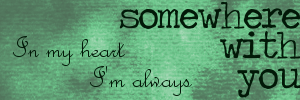In that section, Eustace or Edmund asks Aslan something (don't remember what) and Aslan replies by saying, "I Am". In the Bible, I Am is one of Jesus's names. I've always thought Lewis put that in delibaretly to make another similarity between God and Aslan.

I am still not convinced that it is necessary. The reason it is overtly Christian is because the Bible refers to Jesus as the Lamb and i am not sure that any other religion refers to their god in that way. I also just thought it was a little weird even when i read the book. I really think the lines are enough for me.
Apart from what Aslan says at that stage, identifying himself by 'another name' in Lucy's own world, there is also that story Lucy reads in the Magician's book, the one for refreshment, which looks suspiciously like it quotes the Easter story, itself, so the Christian symbolism of the lamb turning into a lion only emphasizes what is being said.
Aslan is the supreme being of Narnia, a land of talking animals, so he may well have the ability to change into other animals. As well as Aslan turning into a lamb he also turns into an albatross, to lead the Dawn Treader out of the Dark Islands. He changes from a toy horse to himself in Jill's Silver Chair dream, and into a cat in Horse and His Boy to keep Shasta company. Keeping that in mind, I don't find it weird at all. Why not a lamb as well as an albatross?
That's true, waggawerewolf. I never thought of that before.

Concerning the other names of Aslan. Yes I agree with all of you, Aslan and Jesus are the same (in the context of the Narnia Books). I think Lewis was attempting to basically tell us without actually telling us that Aslan is God in Beast form. It makes sense to me. And that’s the message I have always gotten from all of the Books.
In the Silver Chair you also see this when Aslan appears to Jill and gives her the task of remembering how to find Prince Rilian, and Aslan just kind of out of no where pops into the book and has her repeat the steps again in the middle of the story when they are at the Giants castle. And you also see the Narnians have a never ending faith in Him because Puddle Glum's faith is what defeats the Green Witch.
In the Horse and His Boy, we see His Eternal Power when He tells Shasta and Aravis their stories. He does not leave out anything. You also see how Aslan deals with each and every one of the characters in their own lives and needs. With Shasta He, is encouraging him and is comforting him, with Aravis he is rebuking and allowing her to reap the seeds she had sown with her maid. And with Bree He is proving Himself to him, and is building up his confidence and humbling him at the same time.
In Voyage Aslan redeems Eustace and rebukes Lucy for spying on her friends. He is doing the work of God. The Holy Spirit does all of these things for us. He comforts us when we are down and out. He allows us to see our past and allows us to make a choice, to change and grow in His grace and power, or not. He humbles us when we think we are something when he are not, he punishes us when we sin and do wrong, he redeems us when we repent and mess-up and in the case of Jill and Eustace, even though Aslan gave them specific instructions, they still mess-up them all up, and yet the Prince was still saved and restored to the Kingship of Narnia. And I can bring-up many examples of How Aslan is God, King, Friend, Lord and Savior for all of the Narnians.
As far as Aslan being the Bridge-Builder. The Cross is the Bridge. His (Jesus) death on the cross and then His resurrection three days later gives us access in to the thrown room of God. We do not have to go to some priest (i do not mean to offend any of our Catholic friends), or some human advocate we have direct access to God.
The river is of coarse Lewis' way of comparing it to the Jordan River in a physical way, but in a Spiritual way it is a representation of the re-birth of our Spiritual lives.
Well that’s all for now,
To Narnia and the North!!!!!!!
Heaven and earh will Pass away but My words shall never pass away. Jesus, Matthew 24:35.
"When I was a child, I thought as a child, but when I became a man, I put away childish things including the thought of being gwon-up." C.S. Lewis

